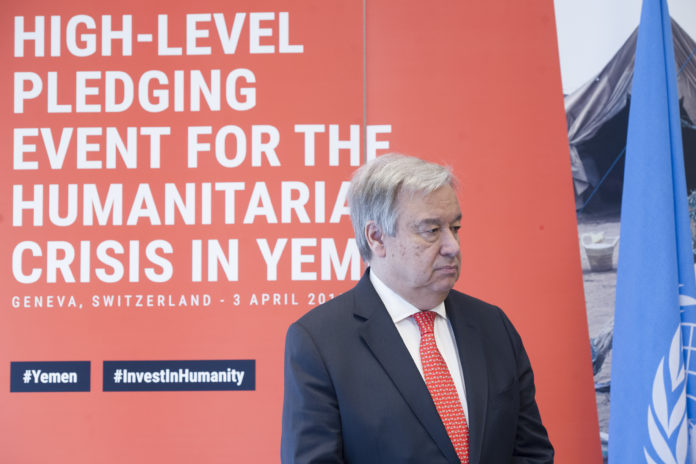In Yemen, as basic services - food supply, healthcare, education, sanitation and water supply - collapse one after the other, disease, malnutrition and civilian deaths continue to rise, signalling the slow death of Yemeni society.
Government leaders meet today in Geneva for a pledging conference for Yemen. Three years after the start of the war, the inhabitants are living in indescribable misery, due to the way hostilities are being conducted. For years, the International Committee of the Red Cross (ICRC) has been urging the warring parties to spare civilians as much as possible - to no avail.
"The crying needs of families would diminish, as would disease, malnutrition and civilian deaths, if the most essential principles of international humanitarian law were observed," explains Robert Mardini, ICRC regional director for the Near and Middle East. "Faced with an acute shortage of food and medicine, Yemeni society is now succumbing to a slow death. We are facing a situation of unspeakable gravity."
For three years, the ICRC has been hammering home the same message: civilians must not be targeted, nor hospitals, ambulances or humanitarian workers. Restrictions on the import and free movement of goods and humanitarian aid within the country must be eased.. We are repeating these same messages today, in the hope that they will finally be heard. There is a significant gap between the words we hear in response to these appeals and the reality we see on the ground.
Progress is possible, however. Following the conclusion of new agreements, the ICRC has been able to visit conflict-related detainees in both camps. This step forward shows that the parties can find ways to respect their obligations under international humanitarian law. But more needs to be done.
The ICRC has also deployed specialized surgical teams to two hospitals on either side of the front line, one in Aden and the other in Saada, to provide life-saving treatment for the wounded. Last year, a total of 139,967 people were treated in these two ICRC-supported facilities.


